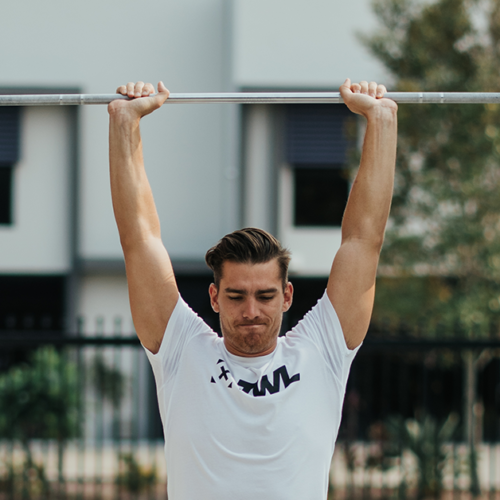You’ve probably been told at least once in your fitness career to “go hard or go home.” The term will be frequently heard at globo gyms, where working sets to failure are seen as an accomplishment and followed by a fist bump. But in the Olympic lifting, functional fitness, and powerlifting world, frequently missing lifts can have adverse effects on your gains moving forward — whether that be repeatedly missing your snatch in an EMOM, testing your clean and jerk 1RM and missing five or six times, or trying to eek out an extra two or three reps on your bench press after you’re fatigued. Here is why you should limit the number of times you are missing reps.
View this post on Instagram
3 Reasons Why You Shouldn’t Fail Lifts Too Often
1. It teaches you to develop poor movement patterns.
Having perfect form and lifting big weights is a culmination of reps upon reps upon reps. Rich Froning was asked how he continues to have such efficient and effective movement on every rep deep into a WOD. He said that it’s by doing a million reps with perfect form.
Developing movement patterns happens by taking your body through the ranges of motion and mechanics repeatedly and “teaching” your body to move as you want it. Missing reps is often due to technique deficiencies, and repeatedly exhibiting these deficiencies is ingraining that movement pattern.
Scott Dueball, a biomechanics engineer, also said, “Sloppy lifting during the final reps of a set teaches the brain to activate inefficient neuromechanics … resulting in injury and lack of progress.”
View this post on Instagram
2. You’re missing out on strength gains.
We get it. Uploading a new 1RM every week at a huge weight looks sexy for the ‘gram. Even when you miss it, at least you gave it a shot, right?!
Wrong.
Follow any reputable Olympic lifting or strength building program and you’ll quickly find that you’re consistently asked to work at sub-maximal loads with high volume. Maxing out or lifting to failure only occurs once or twice every few months. Building solid strength is a grind and requires you to get volume in without flaming out.
3. It fatigues your central nervous system (CNS).
If you’re quickly rushing through your sets to work up to pushing a new max, then you’re robbing yourself of gains. Missing lifts drains your CNS and leaves you with less energy to move weights you can actually lift. This affects your ability to control your body movements, exert maximal speed, and harness your strength effectively.
View this post on Instagram
Why You Should Fail Reps
To become stronger and develop more muscle, you must lift heavier weights and increase volume. If you’re not pushing the envelope, then you may be in a plateau and not improving. One of the methods for understanding our limits is to work to failure. Failing reps lets us know that we’re pushing the boundaries of our physical limitations.
Missing reps also highlights where our technical deficiencies lie so we can best address them and improve.
Lastly, it builds confidence. Nothing helps you make mental gains like attempting a huge lift — regardless of the outcome.














